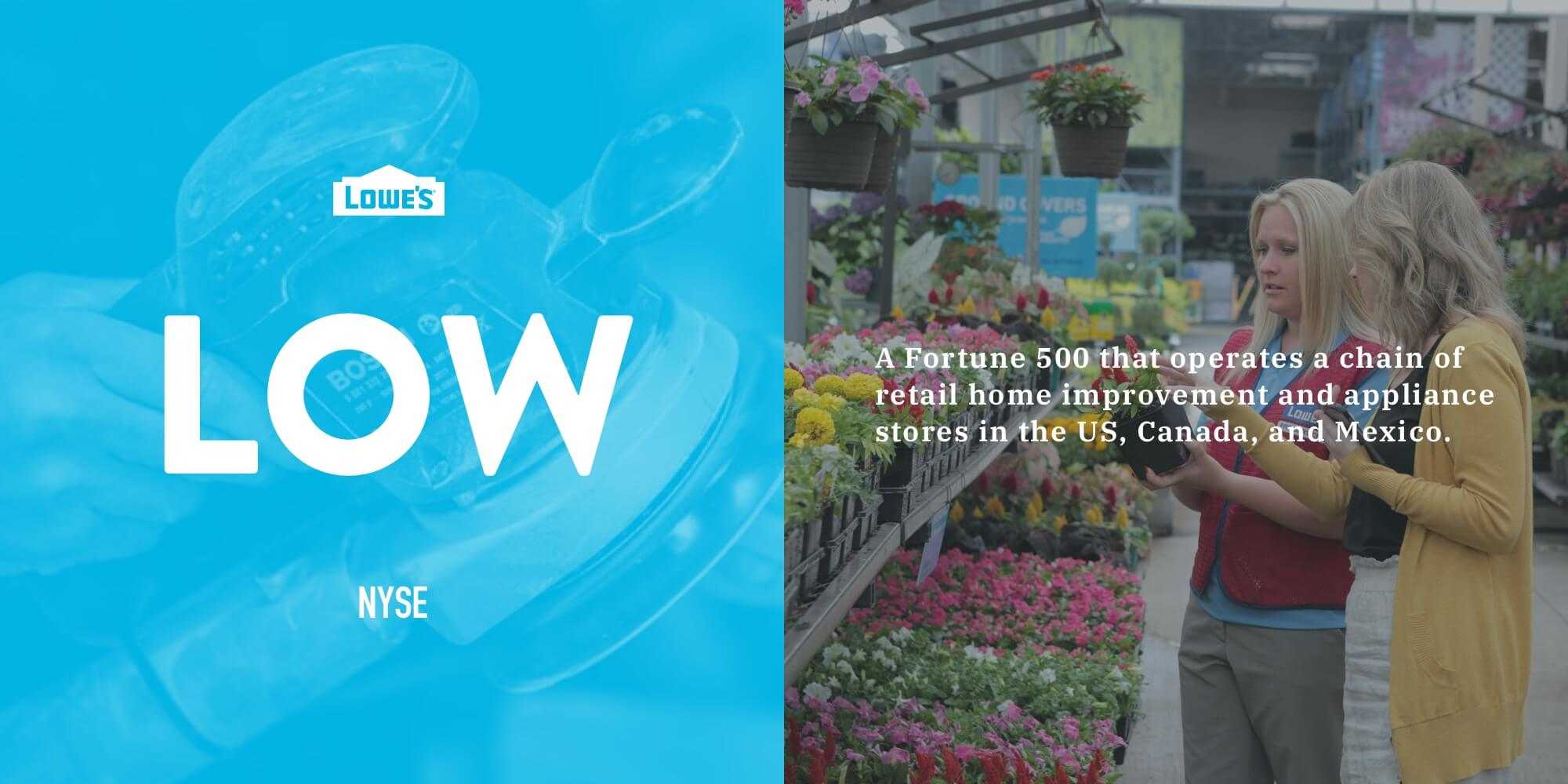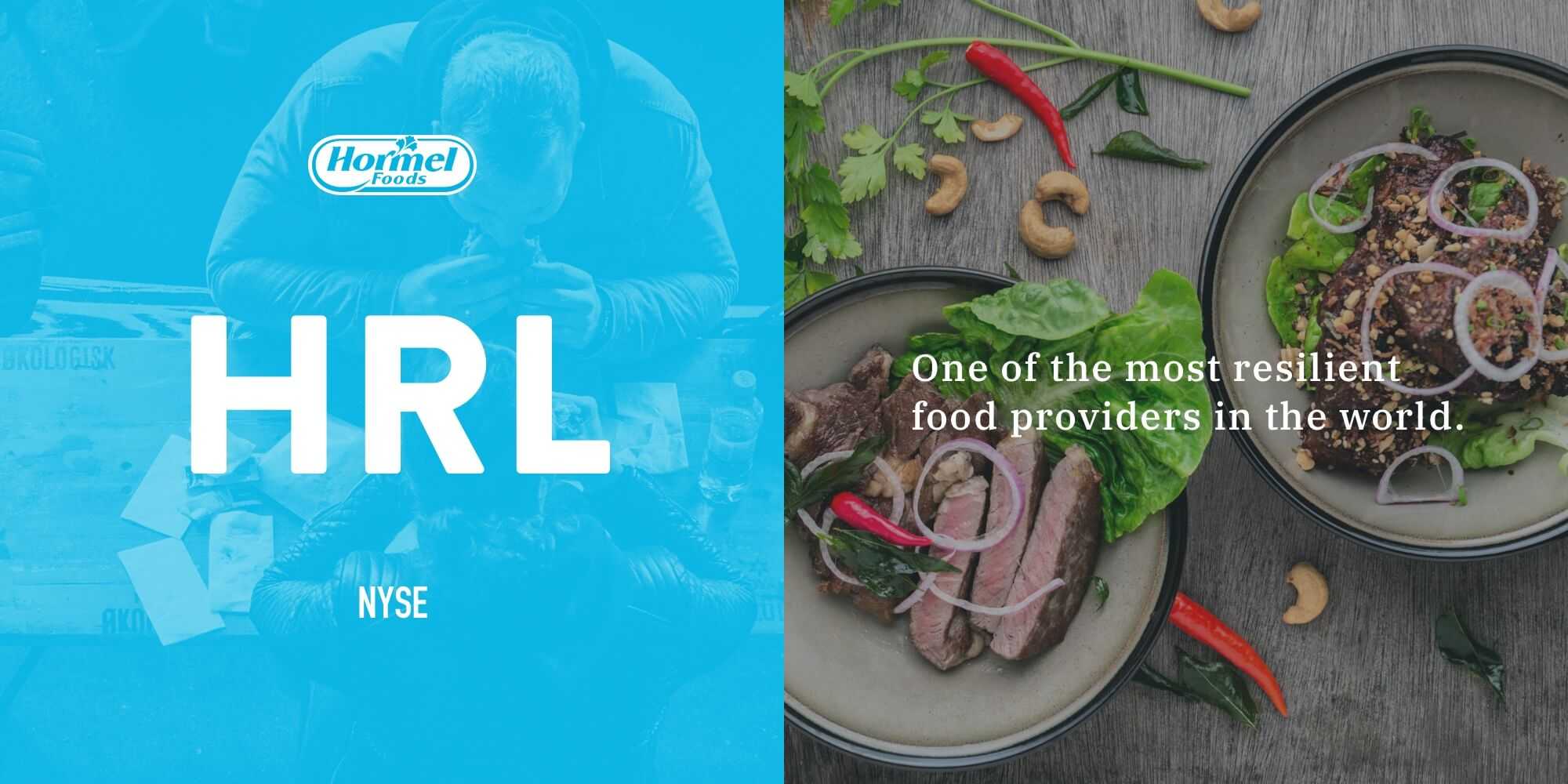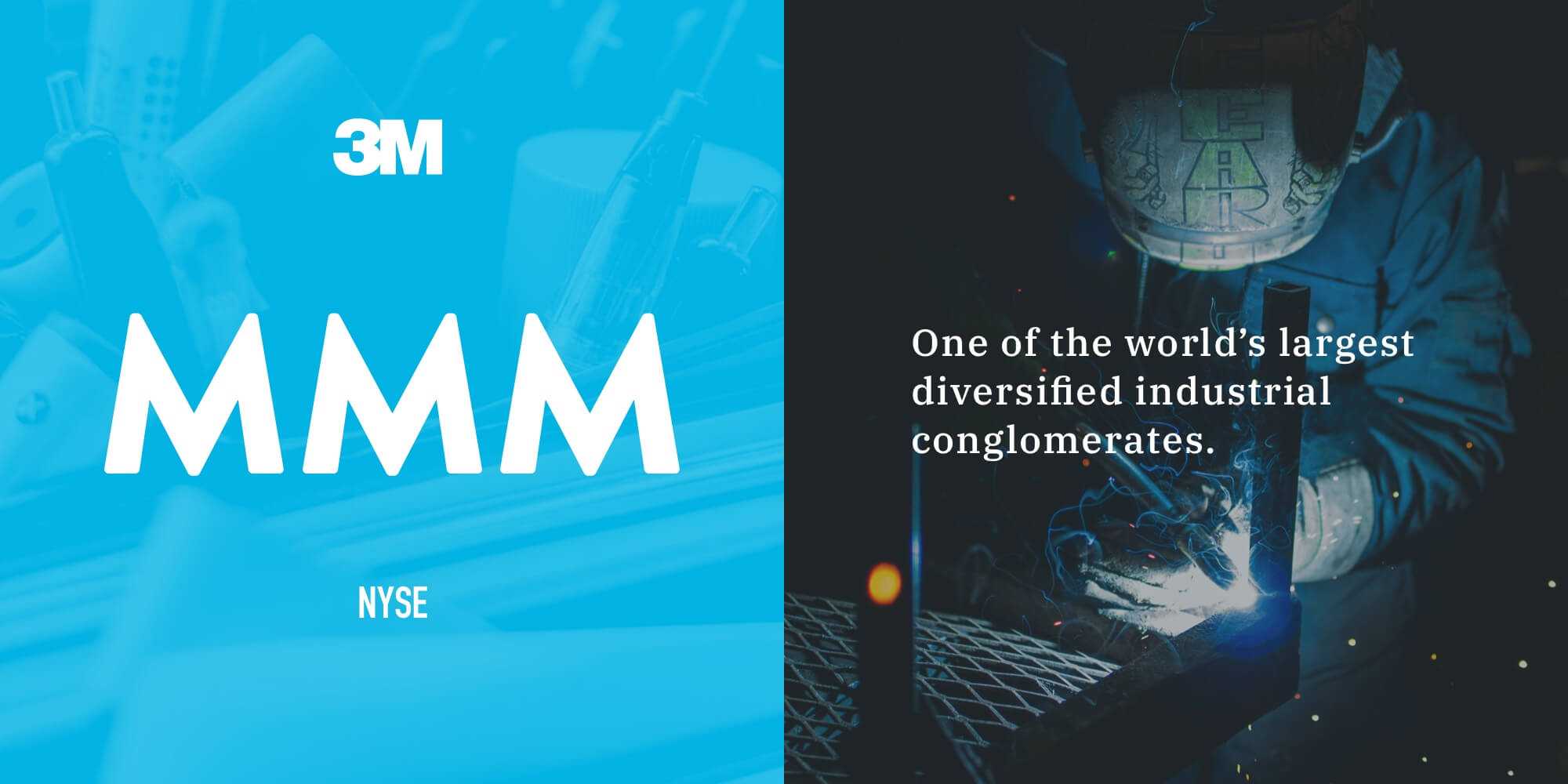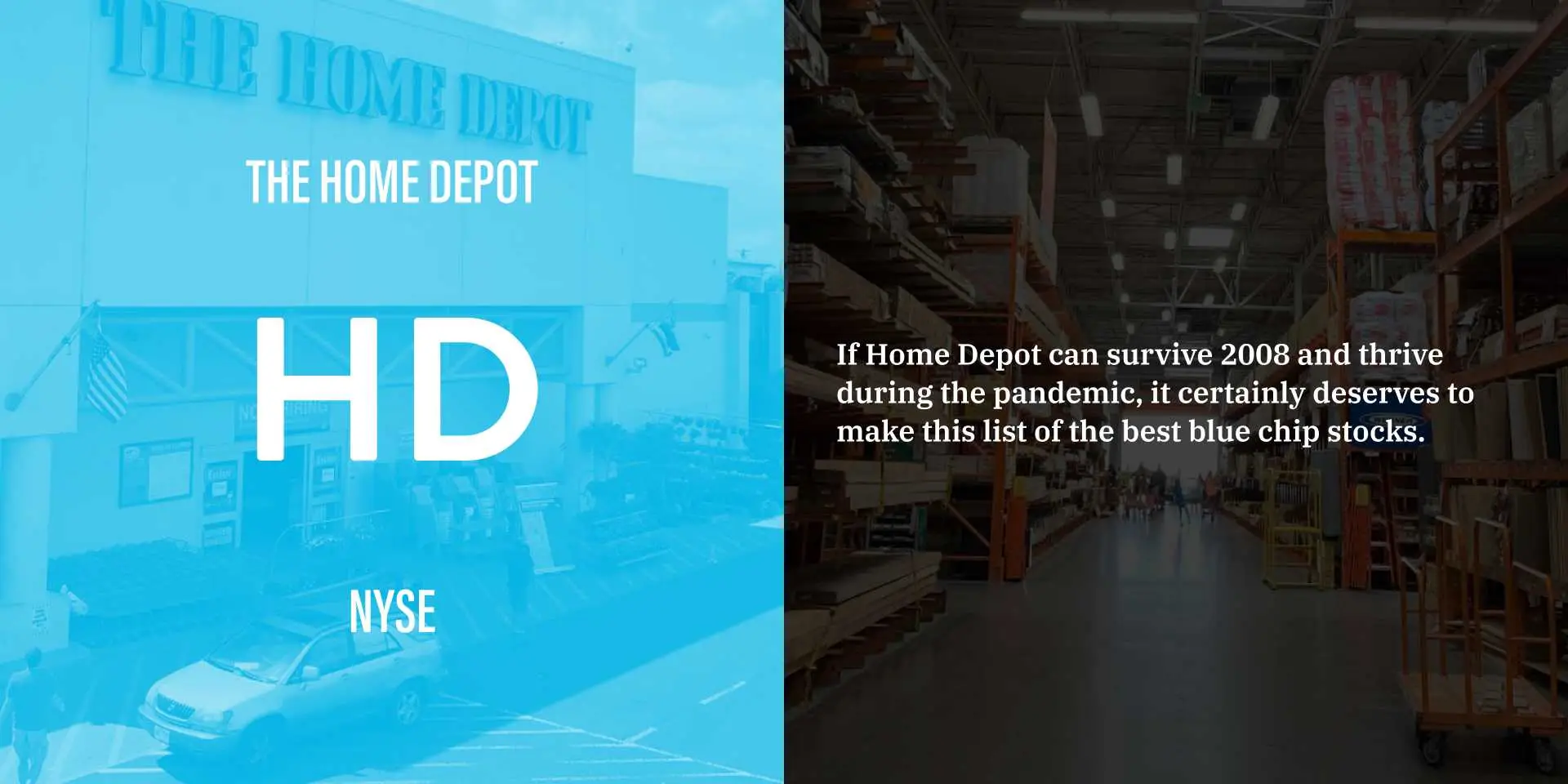Looking to grow cash using consistent stock returns?
The most consistent stocks in the world are called “blue chip” stocks — and they can’t stop performing.
All of them have increased their dividends for more than 50 years straight.
If you’re looking to the stock market with hopes of accumulating long-term wealth, consistent high-performance is the holy grail — and that’s where blue chip stocks come in. stock market with hopes of accumulating long-term wealth, consistent high-performance is the holy grail — and that’s where blue chip stocks come in.
What is a Blue Chip Stock?
The name “blue chip stock” comes from the highest value chips used in poker.
But blue-chip doesn’t mean high priced.
The label is reserved for high-quality companies that have withstood the test of time — multinational companies operating for decades, and providing excellent products that people depend on. Companies that have led their respective industries for years. For companies, old age implies stability and consistency on the stock market.
Blue chip stocks usually have little to no debt, large market capitalizations, stable debt-to-equity ratios, and high returns on equity and assets. And while the blue-chip label has been established as a mark of stability, there is one metric that could be more meaningful than anything else: dividends.
Nothing communicates consistency and dependability more than paying your investors an increased amount every year.
That’s what the Dividend Aristocrats have done.
The S&P 500 Dividend Aristocrats is a stock index of companies that have increased their stock dividend for 25 years or more.
What’s greater than an aristocrat?
A king.
“Dividend King” is an informal label given to companies that have increased their dividend payouts for 50 years or more.
Dividend kings are slow-growing companies with slow-growing dividends.
That’s what makes them consistent and reliable.
The following blue chip stock list includes list some of the most long-term successful stocks, and some of the fastest growing.
If you’re ready to learn about the best blue chip stocks today, let’s get started!
The 15 Most Consistent Stocks of the Last 50 Years
Lowe’s Companies (LOW)

Lowe’s is an exceptionally impressive king, with 54 straight years of increasing payouts under its crown.
The company also touts one of the fastest dividend growth rates at 17.6% per year over the last 30 years.
Lowe’s is a Fortune 500 company that operates a chain of retail home improvement and appliance stores in the US, Canada, and Mexico.
Lowe’s is the second-largest hardware chain in the US behind The Home Depot.
Unlike most large brick-and-mortar chains, Lowe’s has managed to avoid the Amazon effect by servicing demands that require the customer’s in-store presence like paint matching and hardware testing.
That said, Lowe’s has also benefited from its heavy investment in e-commerce. For instance, the company now offers consumers the option to purchase products online and then pick them up the same day in-store —an option that’s proven to be hugely popular with customers.
Lowe’s grew e-commerce sales 111% to approximately $8.70 billion during its fiscal year 2020, a significant achievement considering the company’s main competitors are heavy hitters like The Home Depot and Amazon.
Lancaster Colony (LANC)

Lancaster Colony is a rare dividend king because it has a small market capitalization. The company raised its dividend payout for the 60th straight year in 2022.
Lancaster Colony has beaten the market for decades with 15% annual returns, compared to 10% for the S&P 500 over the past 30 years.15% annual returns, compared to 10% for the S&P 500 over the past 30 years.
Lancaster Colony makes specialty foods. They own many smaller brands such as:
- Marzetti
- New York Bakery
- Sister Schubert’s
- Flatout
- Aunt Vi’s
- Reames
- Mamma Bella’s
- Romanoff
- Chatham Lodge
They also make a significant portion of their revenue from licensing products to stores and restaurants like Olive Garden.
Parker-Hannifin (PH)

Parker-Hannifin is one of the oldest dividend kings. By 2022, their dividends had for 66 years straight.
Parker-Hannifin is an industrial conglomerate. They own companies that specialize in various aspects of motion control systems for mobile, industrial, and aerospace markets worldwide.
They have:
- 292 manufacturing plants
- 88 distribution centers
- 154 offices
- In 49 different countries
In the past decade, the company has diversified by creating a “systems” division providing custom-tailored services and products.
Hormel (HRL)

In 2022, Hormel market 57 straight years of an increased annual dividend.
Another dividend king, Hormel’s five-year consensus total return potential is 5%-11% CAGR.
Over the past 20 years, Hormel has grown its payout by 10.8%.
Hormel is also a food provider that owns many well-known brands. Some of Hormel’s brands include:
- Skippy
- Muscle Milk
- Dinty Moore
- Jennie-O
- SPAM
The company has five revenue sources:
- Refrigerated Foods (49% of sales, 43% of profit in 2016)
- Jennie-O Turkey Store (18% of sales, 24% of profit)
- Grocery Products (18% of sales, 19% of profit)
- Specialty Foods (10% of sales, 8% of profit)
- International and Other (5% of sales, 6% of profit)
While Hormel’s sales are primarily from North America (90%), the company is currently working on expanding its international presence.
Although some companies build a competitive advantage with patents, that isn’t the case with Hormel, which only holds 49 patents.
Instead, the company relies on its name as its biggest strength. Homel regularly spends upwards of $150 million on advertising, which has really paid off.
Over 35 Hormel brand products hold first or second place market share in their categories.
It’s estimated that these top brands make up approximately 60% of Hormel’s retail sales.
3M (MMM)

As of 2022, 3M has paid dividends to its shareholders without interruption for more than 100 years — and increased the annual dividend for 63 consecutive years.
3M is one of the most successful companies of all time. It’s over 100 years old, in which time it’s obtained over 100K patents — and there’s no sign that the company’s patent growth is slowing down.
With a huge R&D budget, 3M typically acquires more than 3K patents per yearyear.
While 3M is often thought of as the “sticky notes company,” they actually offer products across a range of industries. These products focus on major stock sectors:
- industrial
- healthcare
- safety and graphics
- electronics and energy
- consumer
Because the company is well-diversified, it’s less subject to industry-specific risks.
3M operates in more than 70 countries and sells products in more than 200. Even though the company is based in the US, over 60% of its revenue is from outside the country.
Apple (AAPL)

Apple’s unparalleled ability to generate free cash flow has allowed it to increase its dividend for 11 years in a row while simultaneously stockpiling more than $62 billion in cash.
Its profitability has also led it to be worth more than $2.6 trillion, the largest public company in the world.
But its size has not slowed down the tech titan’s innovation.
Apple’s consumer product lineup began in the 1980s with its Macintosh computers, then changed the world with the iPods in the early 2000s.
But no product was more revolutionary than the iPhone, which now accounts for nearly $200 billion in revenue each year.
Despite its long standing as a technology products company, Apple’s focus has recently been on growing its Services revenue, a segment which generated nearly $70 billion last year. This shift has allowed the company to leverage its brand loyalty and create a variety of new, high-margin revenue streams which will continue to support Apple’s profitability for years to come.
For investors, this is likely to equate to consistent growth in profits and free cash flow which should translate into stable, long-term returns and an ever-increasing dividend.
Berkshire Hathaway (BRK.A)

It’s important to note that Berkshire Hathaway is the only company on this list of the most consistent blue chip stocks that currently doesn’t pay a dividend.
CEO Warren Buffett has one of the most successful investing track records of all time and prefers to invest Berkshire’s free cash in lieu of paying dividends.
Given his compound annual return of 20.1% from 1965 through 2022 (versus the S&P 500’s 10.5%), the strategy has worked well for Berkshire’s investors.
Berkshire Hathaway owns a litany of businesses, from insurance companies to fast-food chains and everything in between.
Berkshire has one of the most diverse portfolios of businesses in the world, giving it a reputation for safety, security, and consistent performance — a blue chip stock to certainly consider.
American Express (AXP)

American Express is a financial giant that primarily generates revenue from credit card fees and transaction processing fees.
As we continue our transition into an increasingly cashless society, American Express is poised to reap the rewards.
Despite being more than 170 years old, the company’s management expects profits to grow at a double-digit pace through 2025, an excellent sign for long-term shareholder returns.170 years old, the company’s management expects profits to grow at a double-digit pace through 2025, an excellent sign for long-term shareholder returns.
Plus, its current payout ratio of just 18.9% leaves plenty of room for future dividend increases.
Couple that with organic earnings growth and this blue-chip stock is set to reward shareholders.
Lockheed Martin (LMT)

Lockheed Martin is a U.S. defense contractor with a history of 20 years of dividend growth.
The company researches, designs, manufacturers, and operates advanced technology products for the U.S. government via defense contracts.
Its main products are:
- Aircraft
- Energy
- Air & missile defense
- Autonomous systems
- Other training and service programs
As of March 2022, the company reported an order backlog of $134 billion.
These pre orders provide significant visibility into the company’s future, both in terms of revenue and cash flow.
Coca-Cola (KO)

Warren Buffett, CEO of Berkshire Hathaway, began buying Coca-Cola stock 33 years ago.
Currently, he owns 400 million shares, which generates his company $672 million in dividend income each year.
Coca-Cola’s 61-year track record of increasing its dividend places it among the top 10 dividend stocks in the world.
Although the global beverage company began with just its namesake soft drink, Coca-Cola has grown with the times and provides a much broader array of products.
Today, the Coca-Cola brand sells:
- Juices
- Sports drinks
- Bottled water
Unless soda (and every other beverage category) suddenly stops being purchased, expect Coca-Cola to continue its incredible streak of increasing profits and rewarding shareholders via dividends.

Johnson & Johnson is a $431 billion healthcare juggernaut which has raised its dividend consecutively for the last 61 years — making it the definition of a blue chip stock.
The company is best known for its popular consumer products like:
It also makes a wide array of medical devices for doctors and other medical professionals to perform live-saving procedures and increase patients’ qualities of life.
J&J has indicated it will split into 2 companies by the end of 2023.
- One company will focus on consumer health products
- The other will operate the pharmaceuticals and medical device segments
Both businesses have incredibly reliable demand and can be expected to grow revenue for years to come.
Look for management to continue to reward shareholders through an increasing dividend and share buybacks.
Walmart (WMT)

Another blue chip stock that is largest company in the world when measured by total revenue: Walmart.
The company has raised its dividend continuously for the last 49 years.
Walmart is an American retail corporation which operates department and grocery stores across U.S. and international markets.
Walmart has also launched an online store and other subscription services to compete with Amazon, which it has done with moderate success.
Walmart is a consumer staple regardless of the economic environment and its impressive e-commerce sales growth should continue to fuel its total free cash flow production.
These factors will allow Walmart to raise its dividend well into the future.
JPMorgan Chase (JPM)

JPMorgan is currently trading at a P/E of less than 10x, indicating this may be a great entry point into the leading blue chip bank stock.
Its dividend yield of 3.49% and 11-year history of raising its dividend increase the stock’s appeal.
While fears remain around rising interest rates and possible loan delinquencies, JPMorgan isn’t like every other bank.
JPMorgan Chase has an exceptionally strong balance sheet prepared to weather challenging times.
Plus, given the stock’s current valuation, investors seem to have already discounted the near-term headwinds.
Analysts still expect the company’s earnings to grow at a CAGR of 5% over the next 5 years which will allow JPMorgan to easily sustain its dividend and possibly increase it further.
Microsoft (MSFT)

Microsoft is an American software and consumer electronics corporation founded in 1975 in Seattle, Washington. The blue-chip stock company has raised its dividend for 20 years in a row.
Although it is best known for its consumer-centric products like Xbox, Surface, and its Windows operating system, Microsoft generates significant revenue from enterprise-level software solutions.
These enterprise solutions are expected to generate large revenue and profit growth well into the future, significantly padding the company’s already impressive free cash flow.
This cash flow can then be used for additional share buybacks and further increasing the dividend.
Many investors consider Microsoft to be the premier blue chip stock to own for the next 10 years or more.
The Home Depot (HD)

The Home Depot has raised its dividend for 14 years — and counting.
Home Depot is the leading home improvement retailer in North America. The company was one of the biggest benefactors during the pandemic thanks to consumers flush with cash and more time spent at home.
Instead of a momentary blip, however, home improvement spending has remained elevated post-COVID lockdowns, resulting in excellent growth for Home Depot.
The company also has a long history of performing well in difficult economic environments like the housing crash of 2008. Sure, the stock price fell, but the underlying business exited The Great Recession relatively unscathed.
If Home Depot can survive 2008 and thrive during the pandemic, it certainly deserves to make this list of the best blue chip stocks.
The Bottom Line: Blue Chips are the Most Consistent Stocks
Blue-chip stocks are companies with solid business models that have stood the test of time and continued to increase their profitability. and continued to increase their profitability.
This consistency in creating profits leads to strong long-term returns and regular dividend increases, making them excellent investments for long-term investors.
Many of the stocks on the list of blue-chip stocks above have been around for more than a hundred years, indicating the resiliency of their businesses to survive and thrive even in difficult economic conditions.
It’s this characteristic that draws conservative investors and investors looking to diversify their portfolios into safer stocks toward blue chip companies.
However, just because a stock has performed well historically doesn’t mean it will continue to do so in the future.
And as many investors know, stocks that lack future growth potential quickly fall out of favor.
For this reason, it’s important for the blue-chip stocks you put in your portfolio to have the potential for future revenue and profit growth rates similar to their historical averages.
For investors brand new to the stock market, these large-cap companies are a great place to start investing.
These businesses provide products and services that are part of daily life for billions of people around the world, making blue chip stocks some of the safest investments available in the stock market.
























